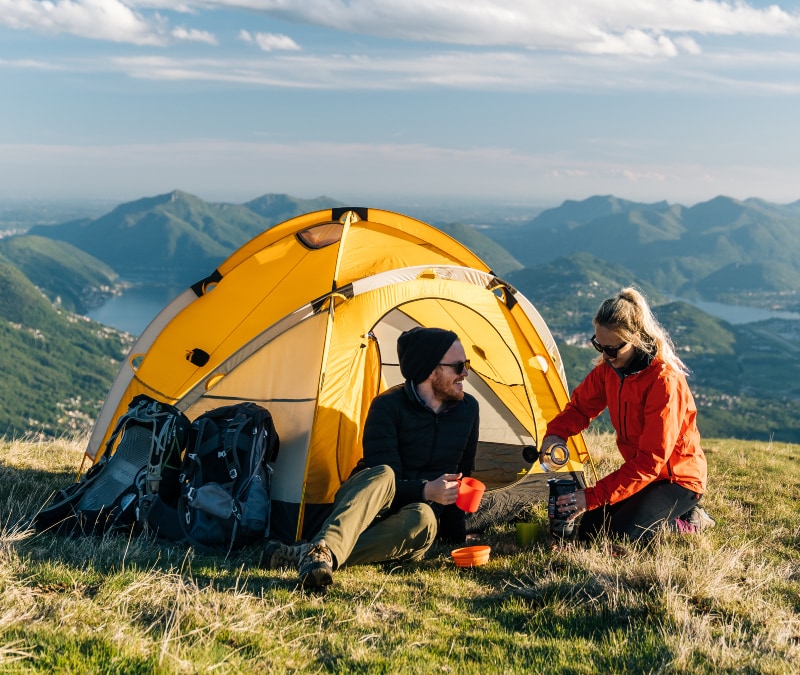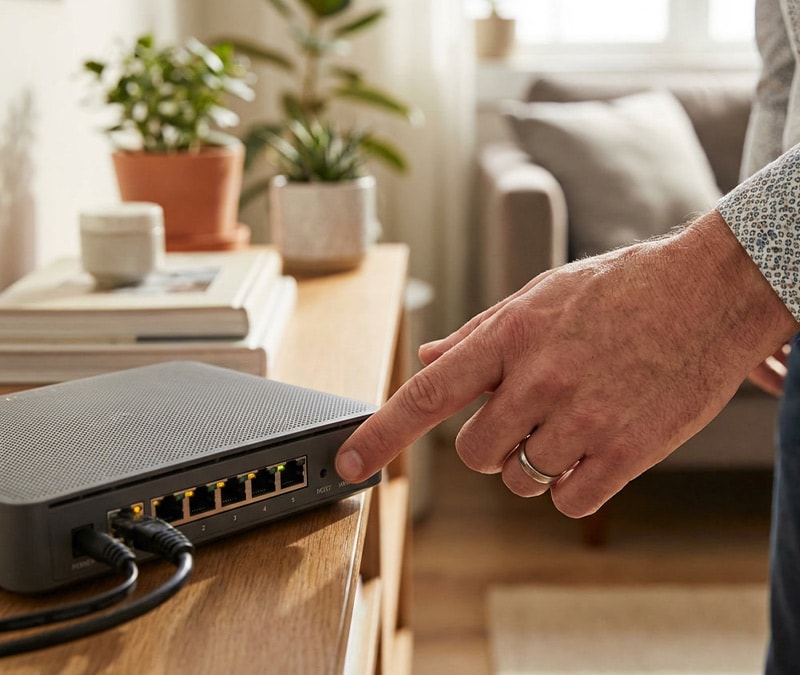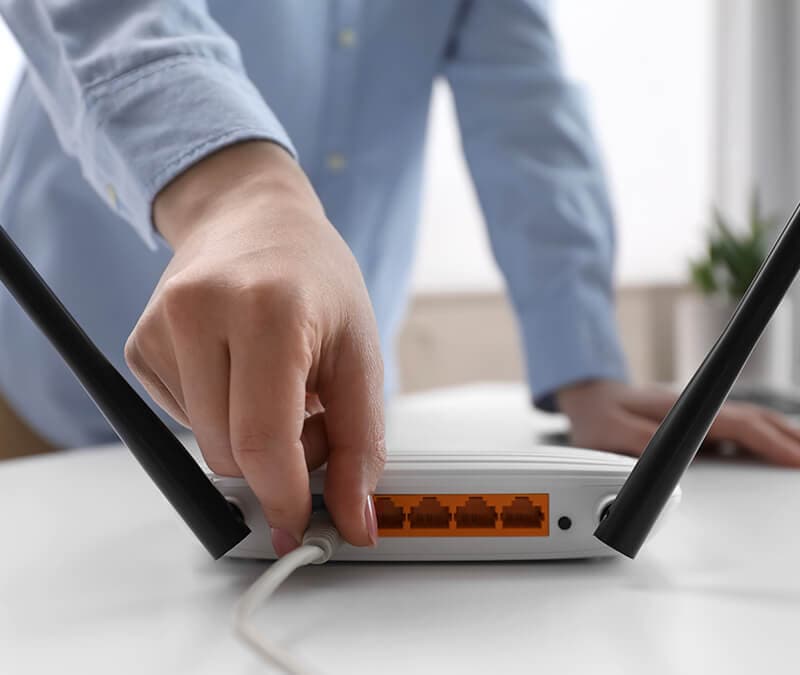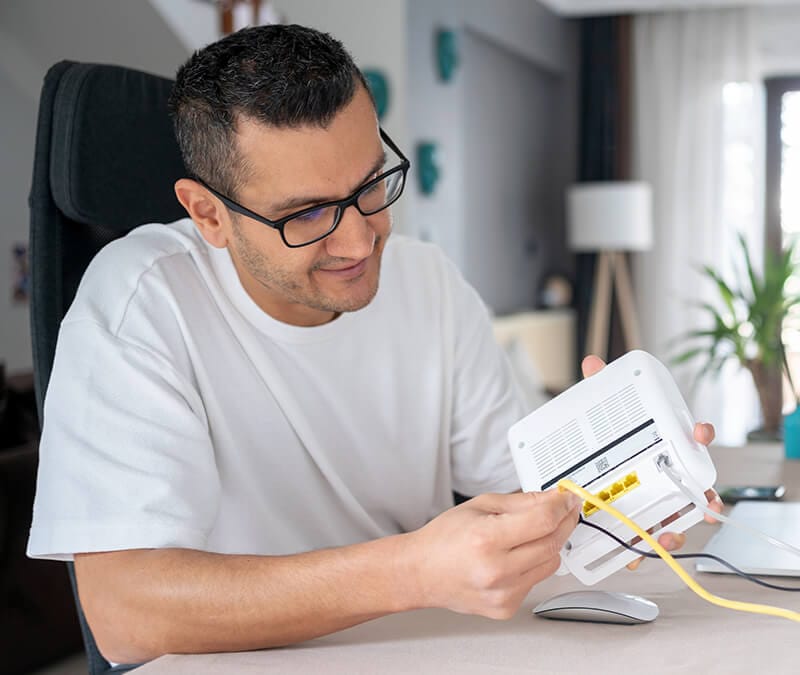Out in the woods—What you need to know about wifi for camping
Camping is fun, but so is being connected. Check out these tips to help keep your connection secure.

When the great outdoors beckons, many of us can’t resist the urge to unplug and enjoy the serenity of nature. But let's be honest—sometimes, we still want to stay connected. Whether it's sharing that breathtaking sunset on social media or keeping tabs on important emails, wifi has become a modern-day camping essential. However, before you connect to that campground wifi, it’s crucial to think about the security risks that come with it.
Is it even safe to use campground wifi?
The short answer? Barely. Public campground wifi can be a breeding ground for cyber threats. Unsecured networks are vulnerable to bad actors who could easily access your personal information. That's why it's important to prioritize secure wifi practices while camping.
How do you get wifi when camping?
There are several ways to stay connected while you're off the grid. Whether you're using public wifi or investing in your own gear, each method comes with its own set of pros and cons.
Connect to public wifi with a VPN
Many campgrounds and parks offer public wifi, which is convenient but comes with risks. Norton VPN can help protect your data by encrypting your connection, making it much harder for hackers to access your information. Always use a VPN when connecting to public wifi to keep your data safe and secure.
Pros:
- Free
- Accessible
Cons:
- Unsecure
- Prone to cyber threats
Get a mobile hotspot
A mobile hotspot is a handy device that allows you to connect your devices to the internet using cellular data. Here’s a quick rundown of its pros and cons:
Pros:
- Easy to set up and use
- Provides a private, secure connection
- Available wherever there’s a strong cell signal
Cons:
- Data limits can apply
- Performance depends on cellular coverage
- Can be costly, especially with high data usage
Use a satellite internet device
If you’re camping in a remote location with no cell coverage, a satellite internet device might be your best bet. These devices connect to the internet via satellites, making them ideal for staying connected in the wilderness. However, this option isn't without its drawbacks.
Pros:
- Works in areas without cell service
- Reliable connection in remote locations for the most part
Cons:
- Expensive hardware and data plans
- Slower speeds compared to other options
- Requires a clear view of the sky
Look Into wifi signal boosters
If your campground's wifi is weak, a wifi signal booster could help extend the range of the network. This can be a practical solution if you're close to a wifi source but struggling with connectivity. However, there are limitations to keep in mind.
Pros:
- Extends the range of existing wifi
- Simple to install and use
Cons:
- Only works if you're within range of the initial wifi signal
- Doesn't improve the quality of the original signal
5 tips to get a better wifi connection on your next camp trip
Here are some quick tips to help you stay connected:
- Position your device close to the wifi source.
- Use a wifi signal booster to extend range.
- Turn off other devices that may interfere with the signal.
- Use a directional antenna to focus the signal.
- Consider a high-gain antenna if you need extra reach.
How to limit your risk when connecting to campsite wifi
Even when you’re enjoying nature, it’s important to stay vigilant about your online security. Here’s how you can limit your risk:
- Use a VPN. Always encrypt your connection when using public wifi.
- Don’t enter sensitive personal information. Avoid online banking or shopping while on public wifi.
- Visit secure websites. Look for "https://" in the URL to ensure the site is secure.
- Get antimalware software. Protect your devices from potential threats with Norton 360.
Beyond bug spray—Keeping cybercriminals from raining on your camp trip
Camping is all about relaxation, but don't let your guard down when it comes to cybersecurity. Protect yourself from identity theft and financial fraud by taking the necessary precautions. Stay safe out there and enjoy the best of both worlds—nature and connectivity. Happy camping!
Editorial note: Our articles are designed to provide educational information for you. They may not cover or protect against every type of crime, fraud, or threat we write about. Our goal is to increase awareness about Cyber Safety. Please review the complete Terms during enrollment or setup. Remember that no one can prevent all identity theft or cybercrime, and that LifeLock does not monitor all transactions at all businesses. The Norton and LifeLock brands are part of Gen Digital Inc. For more details about how we create, review, and update content, please see our Editorial Policy.




Want more?
Follow us for all the latest news, tips, and updates.